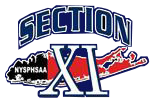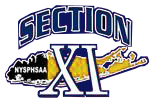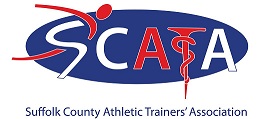Being athletic director in Central Islip is a blessing
By Lawrence Philips / Published June 13, 2016
Being the athletic director in Central Islip is grueling, as it is in all Suffolk County school districts. Being responsible for physical education, health, health services, the wellness committee, various grants, social media, among other things, leaves for little down time; as one can attest by watching me play golf. That being said, 12 hour days pass in a blink of an eye.
 Lawrence S. Philips
Lawrence S. Philips
Central Islip is the single best place to be an athletic director, partly because I have been part of the Central Islip family for over 45 years. I attended the CI public schools my entire life and graduated from Central Islip High School in 1985. However, the student-athletes are the primary reason I am so blessed and look forward to work each and every day.
The athletic program in the Central Islip School District has produced many All-American and All-State student-athletes throughout the years. Many professional athletes and Olympians have also been Central Islip graduates. It is our practice of turning out well-rounded student athletes that we are most proud of.
When it is time for the annual Student-Athletes as Reading Partners jaunt, the ďstarĒ athletes are the first to volunteer. When it is time to gather volunteers for our highly successful Wellness Fair, again the student-athletes step up and lead by example. The student-athletes have high GPAís, and graduation rates and college acceptances that far exceed the general student body. In spite of this, the best thing about the student-athletes in Central Islip is their ability to be humble, polite and thankful.
The responsibilities of being an athletic director are often overwhelming. I continue to be amazed every single day with the level of collaboration that takes place with every single athletic director in the county, their staffs and the Section XI office. Central Islipís new and top of the line athletic facilities would not be possible without the help of my Section XI colleagues. The same holds true for our academic eligibility policy, our commitment to sportsmanship, our Sports Hall of Fame, our Booster Club, the college recruiting process, you get the picture. I can send one email to my AD colleagues and receive 30 spot-on responses within minutes.
As athletic directors we are expected to give back, not only to our school districts, but to interscholastic athletics throughout Section XI. It is extremely time consuming being the Section XI bowling chairperson, as well as sitting on the Section XI placement, modified, technology, constitution and awards committees; yet the personal sense of gratification of working closely with the best educators in Suffolk County and playing a role in what is arguably the most important educational experience a student can have makes the extra hours all worth it.
Helping student-athletes take advantage of opportunities, especially student-athletes in Central Islip, is the biggest ego boost one can imagine. Playing a role, however small it may be, in having our QB play at Brown and having our tackle play at Ohio State is very gratifying. What is even more rewarding is having the student-athletes, those who will not play at the next level, meander into my office with their college acceptance letters, with wide grins on their face, and give me a fist bump, hug and thank you. Being athletic director in Central Islip is a blessing, one I never take for granted.
Lawrence S. Philips is Director of Physical Education, Health, Athletics & Health Services for the Central Islip Union Free School District
Being an athletic director is an honor
By Michael De Joseph / Published June 5, 2016
For the past six years, I have had the privilege and pleasure of being the Director of Health, Physical Education and Athletics for Babylon Schools. As the title indicates, I have several responsibilities but athletics consumes the majority of my time.
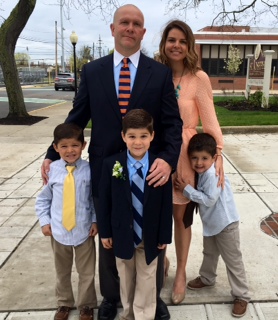 Michael DeJoseph
Michael DeJoseph
I began my career as a teacher and coach, becoming an athletic administrator was never part of my professional plan. However, following 11 years of teaching physical education, health and coaching a variety of sports in Babylon Schools an opportunity in administration presented itself. I decided it was time for a new challenge and began this journey in the summer of 2010.
I will be honest and admit that I was naÔve about the position. I mean, how hard could it be? The answer: this position is extremely challenging and fast-paced; no two days are ever the same and there is no punching a time clock (the days are long). Thankfully, my wife and children are VERY understanding!
My description of the challenge is not a complaint, I embrace the diversity of the work and enjoy the variety of individuals, groups and organizations I get to work with daily. In my opinion, the key to success in this position is communication and collaboration. I have learned that many of my experiences in life, whether work-related, as a husband or as a parent, have served as tools in building relationships with children, colleagues and community members. Administrators, teachers, coaches, secretaries, custodial staff, students, athletes, parents and community members all need to work together to create a positive experience.
Everyone is a stakeholder in the game of athletics. The Babylon community takes great pride in all school programs, especially our rich tradition in athletics, so I am fortunate to hold this respected position. In addition to the support from school and community relationships, the leadership and staff at Section XI and my fellow athletic directors provide guidance, advice and encouragement during challenging times. I am fortunate to consider these individuals my colleagues and friends.
Babylon athletics has long enjoyed great success; the last six years have been no different. Numerous league titles, Suffolk County and Long Island Championships, teams advancing to the New York State Championships, New York State Scholar-Athlete teams, teams of distinction and individuals advancing to play collegiate athletics have been a testament to our school organization, coaches, student-athletes and community support.
I am often asked, ďwhat is your favorite part of the job?Ē Most assume it will be some description of a championship game, game-winning play or some program that has demonstrated success. Not at all. My favorite part of this job happens once in a while when we finish a night contest and the lights remain on for the custodial crew to clean up and a handful of kids begin to toss a ball around. No rules or regulations, just a bunch of Babylon kids having a great time. It brings a smile to my face every time and reminds me of what is most important, our kids.
Being an athletic director is an honor. I do not view my position as one of power but rather as an opportunity to provide resources for our school organization and community to enjoy participation in a variety of interscholastic sports and physical activities. Being an athletic administrator has become my only professional plan; I cannot imagine doing anything else.
GO PANTHERS! Follow us on Twitter @babathletics
Michael DeJoseph is the Director of Health, Physical Education and Athletics for Babylon Schools
Interscholastic Athletics: The Ultimate Experience
By Claude Kasman / Published June 1, 2016
My teaching career began more than 30 years ago as a physical education teacher in a Manhattan High School, which is part of New York City schools, a system that I myself graduated from in 1978 at Forest Hills High. After six years as a teacher and coach, I became the assistant principal of health and physical education, however, I continued teaching and coaching and served as the athletic director.
 Claude Kasman
Claude Kasman
In 1996 I made the transition to Suffolk County where I became the Director of Health, Physical Education and Athletics for the Westhampton Beach School District. In 2000 I became the Director at the Bay Shore School District, which is where I am today.
In my early days I fondly recall teaching five daily physical education and health classes, some of those classes had between 50 and 100 students. My day would continue afterward as I coached all three seasons. I coached volleyball, basketball, softball and baseball.
It always amazed me and continues to do so, the level of commitment, dedication and enthusiasm that student-athletes demonstrate every day. I am in awe of how much pride students and their families take in representing their school and community. Seeing the joy on the faces of student-athletes as they practice and compete is one of the best perks of the job.
Many students are playing with the friends they have known since elementary school. The bond is evident as I observe them laughing and enjoying each otherís company.
Too often I believe people forget that for most high school student athletes, the day begins before 7 a.m., and usually doesnít end until well past 6 p.m. Students spend all day attending classes before attending practice or contests. Most donít go home until late afternoon or early evening where they then begin addressing their homework, studying and projects. Most embark on the same routine six days a week, including Saturday.
The interscholastic program provides student-athletes an opportunity to represent their school, community and family within the context of an educational environment. Throughout New York State, a school districtís interscholastic athletic program, under the rules and regulations of the New York State Public High School Athletic Association (NYSPHSAA), provides a level playing field by ensuring students compete in a fair and equitable environment. Only certified personnel that meet NYSED regulations and standards are able and approved to coach an interscholastic team.
In New York an interscholastic athletic programs mission is to promote the qualities of character, competency, civility, and citizenship; the 4 Cís of the NYSED Educational Frameworks for Athletics. Coaches are entrusted to promote these qualities and characteristics in their daily coaching responsibilities.
As we know, most students enjoy participating not necessarily for the goal of achieving a scholarship, but to be part of a team and the camaraderie of playing with their classmates and friends while representing their home town.
The interscholastic athletic program, as evident by the coverage provided by Newsday and MSG Varsity, has become an integral component and the fabric of every community on Long Island. It provides memories and experiences that will last a lifetime. For many of our students, it is the ultimate experience.
Claude Kasman is the Director of Health, Physical Education and Athletics at Bay Shore.
Quality coaches help all athletes reach their potential
By Jeremy Thode / Published May 9, 2016
Being a former high school and college athlete gave me a lens about athletics that was very narrow. I played many different sports over the course of my lifetime. I was a late bloomer athletically and, although athletic, I owe much of my success to hard work, perseverance and dedication. I was never the best athlete in the group but I was rarely, if ever, outworked. I enjoyed the competition, testing myself, and climbing the mountain looking for success. The reality is I wanted to win and be successful.
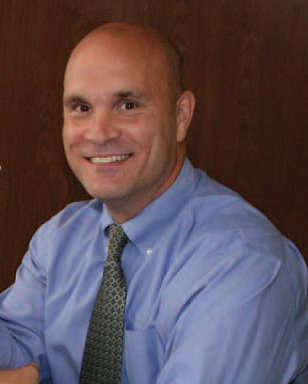 Jeremy Thode
Jeremy Thode
Once I became a physical education teacher and coach and ultimately an athletic director, my lens on athletics changed. I learned that many times coaches coach based on a foundation of who coached them. That could be good or bad. I learned that you often hear coaches, athletic directors and even parents say that sports teach children teamwork, commitment, hard work, dedication, and sportsmanship. I learned that is not true. You only learn those things if you are taught them by the coach and sometimes a coach has to change their learned behaviors to do what is best for the child in order to teach the correct values in sport.
Athletes need to be invested in. Quality coaches need to take the time to get to know each player, understand their perspective in life and concerning athletics, find what motivates each athlete and design interactions, experiences and scenarios to help each child reach their individual potential. It is not an easy thing to balance, while trying to teach the game, and find success but interscholastic athletics is the most important opportunity to give each athlete at least one moment, and preferably many, that they can be proud of and grow from. Just think what impact that can have on a lifetime! Athletics should be a breeding ground for confidence and self esteem building. Even the least talented player on a team can be proud of what they did, how they improved, what they learned, or just how they stuck it out. Coaching is the opportunity to give something meaningful to each athlete. I know many times I relied and still rely on my athletic experiences given to me through quality caring coaches in my professional, personal and family life. Working as a team, being committed, working hard, dedicating myself and showing sportsmanship/positive behavior have been cornerstones of various successes in my adult and family life. I have also failed and learned how to respond to failure through athletic experiences.
Parents also have to focus on what is best for the child. We are in a society that is fast paced and result oriented. Many parents are investing thousands of dollars for camps, clinics, trainers, travel, accommodations, fees, and equipment. It is wonderful when any parents goes above and beyond to support a child and their child's interests. Sometimes with that investment, comes stress and expectation. Athletes are stressed with commitment, the investment, pleasing their parents, and keeping up with other athletes. As a parent, I learned early on about putting pressure on my own children as their coach. I had good intentions and wanted them to experience success and the natural high I received during athletics. I realized that my children are not me. I cannot replicate for them where I came from and why I think, feel, and acted the way I did. What I learned was that I want my children to be passionate about something, ANYTHING. Athletics, academics, art, music, readingÖ it doesn't matter. I want my children to invest in themselves. I want them to find ways to feel great about themselves and have THEIR OWN success in something THEY want to pursue or become. So my message now to my children is that I still want them to be involved in sport regardless. I believe it is great opportunity to challenge them, have social interactions, compete, and exercise. If any of them experience athletic success, itís a bonus but only if THEY do the work. I keep reminding them that if they want better grades, or to sound better on an instrument, or more playing time, they need to practice. If they have a good social interaction or experience with a coach we talk about it and tuck it away for future success. If they have a negative social interaction or experience with a coach we talk about it and discuss how to grow from it. Sometimes the bad experiences, regardless of what they are, are the best ones to create resilience for a child.
The X factor in it all, is communication. Coaches need to communicate. Talking to athletes and parents is a powerful opportunity to make a positive difference, to create a legacy. I teach a class for coaches and one of the exercises we do is to raise their hand if they can remember the names of the top three teachers or coaches they had, then raise their hands if they can name the bottom three, and then again if they can name all the others. Everyone remembers the best and the worst. Most canít remember the others. As a coach, who do you want to be? What legacy do you want?
As a parent, communicating with and learning who your children are is critical. Listening to them and exposing them are crucial. Give your child unconditional support and encouragement, stay away from expectation and pressure. Your child's performance on the court, field, mat, or in the pool is not a direct reflection of them or YOU. Itís a game and hopefully their success or failure is only a valuable experience for them to grow into strong resilient and healthy adults. I believe we should always try our best, go for the gold, and try to win. No matter what the passion, we need to practice to improve. Preparing to win (or succeed) is more valuable then if we win.
Jeremy Thode is Associate HS Principal/Director of Health, Physical Education, Business, Fine & Applied Arts, & Athletics at Center Moriches.
Being an athletic director Ö the single best job in Suffolk
By Pete Blieberg / Published March 26, 2016
For the past 25 years, I have had the privilege to hold the single best job in Suffolk County. Being an athletic director is truly a blessing. This wasnít my ultimate goal, as I always wanted to be a high school physical education teacher and head football coach.
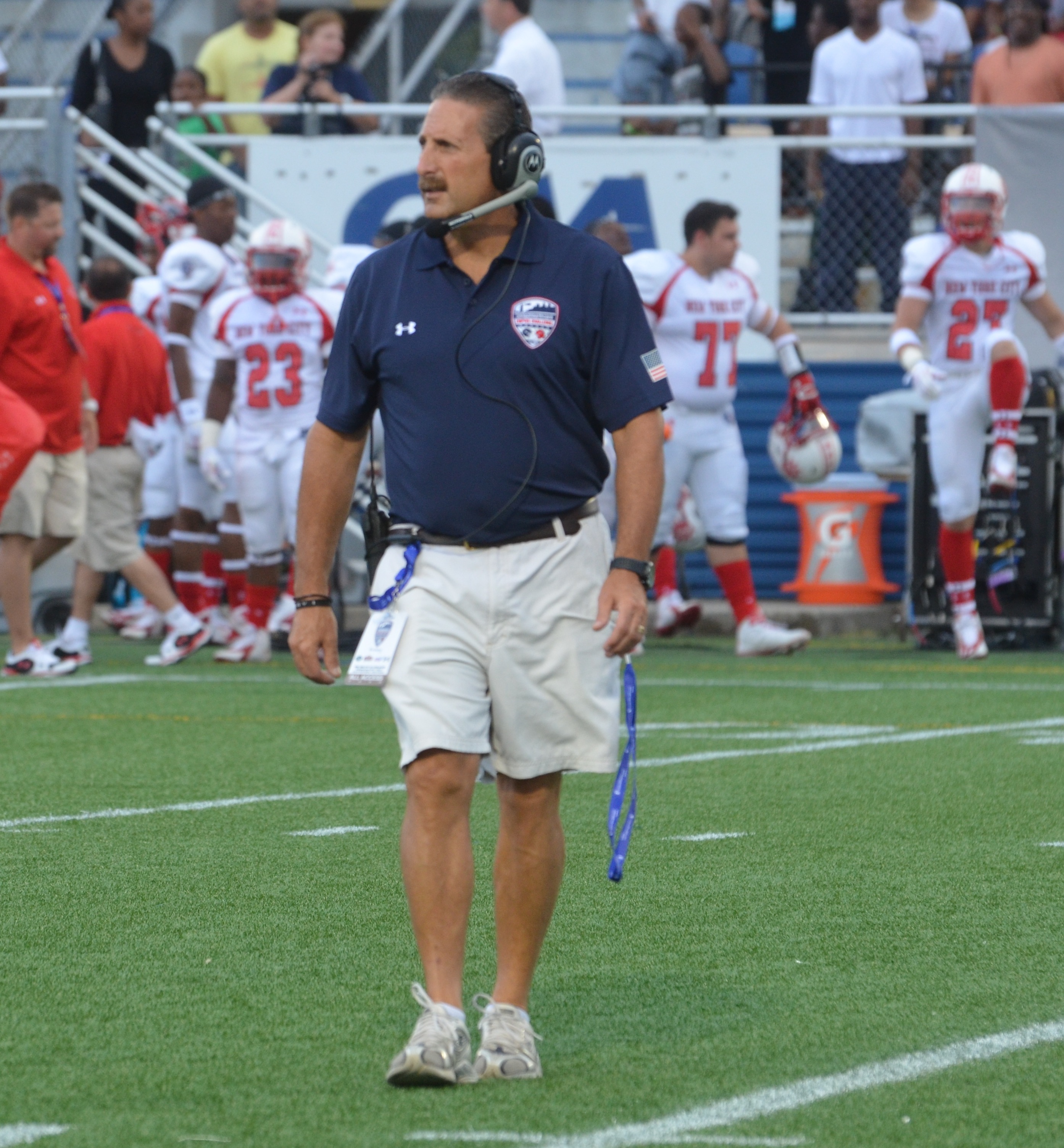 Pete Blieberg, Director of Athletics, Health and Physical Education for the Sachem Central School District.
Pete Blieberg, Director of Athletics, Health and Physical Education for the Sachem Central School District.
That dream became a reality when I left Sachem after five years as a physical education teacher and freshman football and lacrosse coach and moved over to Kings Park where I served as the head football coach and a physical education teacher for the next five years. But then life got in the way.
I was excessed from my teaching job to half a position and, luckily, I was fortunate enough to receive a waiver from the state, become the athletic director there while I completed my administrative degree and, as they say, the rest is history.
What most people donít know about the job is actually what we do; let me try to explain.
During the school day hours, our responsibilities, which vary from district to district, and include but are not limited to, working with K-12 physical education and health teachers, overseeing the school nurses and working closely with school secretaries, custodians and grounds crews to prepare for the interscholastic day ahead.
When most peopleís work days end, the second half of our job begins. We are out watching practices and games, checking to ensure that all fields are properly set up, chaperones are in place and timers and scorers are where they need to be. I would be lying if I said that itís the athletic director that arranges all of this, in each and every case, itís the athletic office staff that does the majority of the leg work making sure buses are scheduled and on time, as well as school and grounds staff are communicated with every day to ensure a smooth transition from school day to interscholastic athletic day. One only needs to shadow an athletic office on a rainy fall or spring day to see the value and worth of these outstanding ladies that are truly the MVPís of any (and all) athletic departments.
Probably the greatest part of our jobs is getting to watch our student-athletes perform and represent our school districts and communities. It is here, long after the general population has gone home for the day that the relationships are forged between the ADís and coaches, the student-athletes and their parents. This is by far the most rewarding aspect of our jobs.
Looking back I have been extremely fortunate to be associated with numerous championship teams. When I was the AD at East Islip, the football team won the schools only Long Island championship, and my youngest son, Alec, was a wide receiver on that team, which made it extra special. It was a wonderful thrill as an AD and a dad!
At Sachem, weíve crowned numerous state and national champions but when the Sachem East field hockey team won its first state title, and Sachem North football won the Long Island championship, those were two of the biggest highlights of my career.
Another perk that we have, that other school administrators donít enjoy, is that every three months or so we start a new season, with new faces, teams and fun, complete with fresh expectations. This is what has kept me engaged and focused over a 25-year career as an AD (35 total in education).
Being able to sprinkle in special events such as welcoming back alumni and championship teams from years gone by, hosting athletic hall of fame ceremonies and maintaining the history of our programs allows the current student-athletes and coaches to take pride in the programs they are involved in and helps to keep strong traditions intact.
As in most things, the first ones are the best; at Kings Park we held a full contact alumni football game that attracted one of the largest crowds ever seen at the school. But in all fairness, Iíd have to say bringing back the 1986 Rutgers Trophy team at Sachem was the best. First, because of the lifelong admiration I personally have for former Coach Fred Fusaro, and, secondly, because I actually coached a number of those players when they came though the freshman program during my first run here. Moments like this have truly been special.
I couldnít think of a more rewarding job then to be an athletic director!
Pete Blieberg is the Director of Athletics, Health and Physical Education for the Sachem Central School District. He has served in similar roles in both East Islip and Kings Park. Blieberg is also the game coordinator of the Empire Challenge all-star football game, founded by the Boomer Esiason Foundation and played to raise funds and awareness in the fight against cystic fibrosis.


